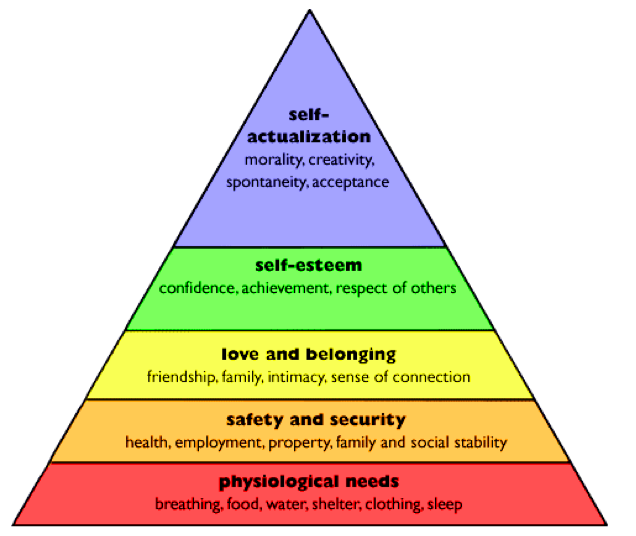Its all very well railing against the ineffectiveness of the current movements for human ecological sustainability (see previous two posts) but what should we do until a credible Gaian Rebel Army (GRA ?) emerges?
I'm not going to go Shopping for Semtex yet - although I imagine it is possible to acquire the means to destroy infrastructure through the magic of the dark-web, so what till then?
I think the priorities have to be to look at one's personal resilience. We can't know the future but we are most likely heading for a period of increasingly extreme authoritarianism (which you might say has already started with a, possibly manufactured, social consensus supporting it), probably followed by increasingly fragmentation.
Supply chains will start to become unreliable and fail, alternatives and fixes will be cobbled together to enable life to go on. Black swans will proliferate as the cascading effects of eco-system stresses unfold. How quickly this will happen and whether we will recognise the events as steps on a road to oblivion as they occur is an open question.
So as individuals we need to start to look to our personal resilience at every level.
 Maybe a useful model here is Maslow's Hierarchy of Needs and to consider what elements of your life are most likely to be impacted living in a decaying (slow collapse) society.
Maybe a useful model here is Maslow's Hierarchy of Needs and to consider what elements of your life are most likely to be impacted living in a decaying (slow collapse) society.
Most "preppers" seem to concentrate on the bottom two layers, which is understandable as without those being satisfied the higher levels become unobtainable. But it is probably worth remembering that love & belonging and self-esteem needs could easily be impacted by events without your core safety or physiological needs being damaged. If your sense of self-esteem comes from doing what you consider a worthwhile job, and your love & belonging are largely centred around your workplace the sudden disappearance of the organisation which sustains you may leave you very vulnerable. Is your job and the skills you have one that is likely to exist in a sustainable human society?
It is also worth reflecting that not everyone will be affected equally at every stage of the decay. I'm presuming here that the collapse of our civilization will proceed in a stepwise fashion and at different rates in different places. So one consideration might be where best to locate yourself - but I would suggest if you don't live in a city, then it is probably best to stay where you are assuming it is not obviously vulnerable to any white swans (the events that are already predicted although without the detail necessarily being clear - eg sea-level rise, extreme weather - floods, heat - and so on).
Personally most of my adult life since age 25 has been informed by the need not to be in a city - so that is dealt with for me. There is considerable value in staying in one place and "putting down roots". Getting to know the local people and community and culture if it is not your growing up place. If the shit really does hit the fan then it might help not to be within a day's walk of the edge of a city.
So some questions to think about:
- reduce dependency on the car. Mae sure you know and have alternatives for every journey you are likely to make.
- getting to work without a car
- moving children around - school, friends - without a car
- collecting provisions - shopping for essentials
- shopping without the internet
- what's left in your area when the internet dies (it will, another white swan)
- shopping without the supermarket
- who can supply you with food when the supermarket shelves are no longer reliably stocked.
- local suppliers will surely prefer to supply their existing customers first - start using them now to develop the relationship
- light and cooking during a power cut
- do you have candles and matches. Do you have a camping stove to boil a kettle or fry an egg.
- what about when the electricity grid starts to fail and the power is out for extended periods
- heating as energy costs rise - and eventually the gas supply starts to fail as well
- there are tech solutions, involving battery storage and a lot of roof-top solar if you can afford it now, but what about replacing it in 20years when the inverter and panels start to fail.
- if you are burning wood where will your supply come from
- how much of your own food can you produce
- if you have a garden start to practice growing stuff know - the skills might become life critical
- what food can you store and for how long
- get in the habit of having a well stocked food store with staples and cycling it
- make a store place - dry, cool in summer, but never freezing in winter.
- start to preserve fresh fruit and veg for the hungry gaps to come - more life skills
- what about your health when there are no medicines
- take responsibility for your own health
- don't forget mental health. Reduce your consumption of media, including social media
- communication - keeping in touch
- how will you do it without a mobile phone
- do you have friends or family within walking distance - if not get them. A good friend next door is more important than a parent/sibling/child 200 miles away.
- and so on and on and on. This is a random list and far from complete. It also doesn't matter much where you start so long as you take the first steps today.
Finding solutions to some of these issues for me personally is one of my main priorities for this year. Hence my decision to move out of conventional activism. I see this as far more practical activism in that the more resilient people produce themselves the better our chances of forming a resilient society and a new civilization that will last for 7 generations and more.
Which is not to say that the urgent need to stop humans destructive relationship with our eco-system is not more important. If an effective revolutionary movement emerges then I want to be a part of it. But right now I'm not shopping for semtex as I don't know how to use it.


Comments powered by CComment